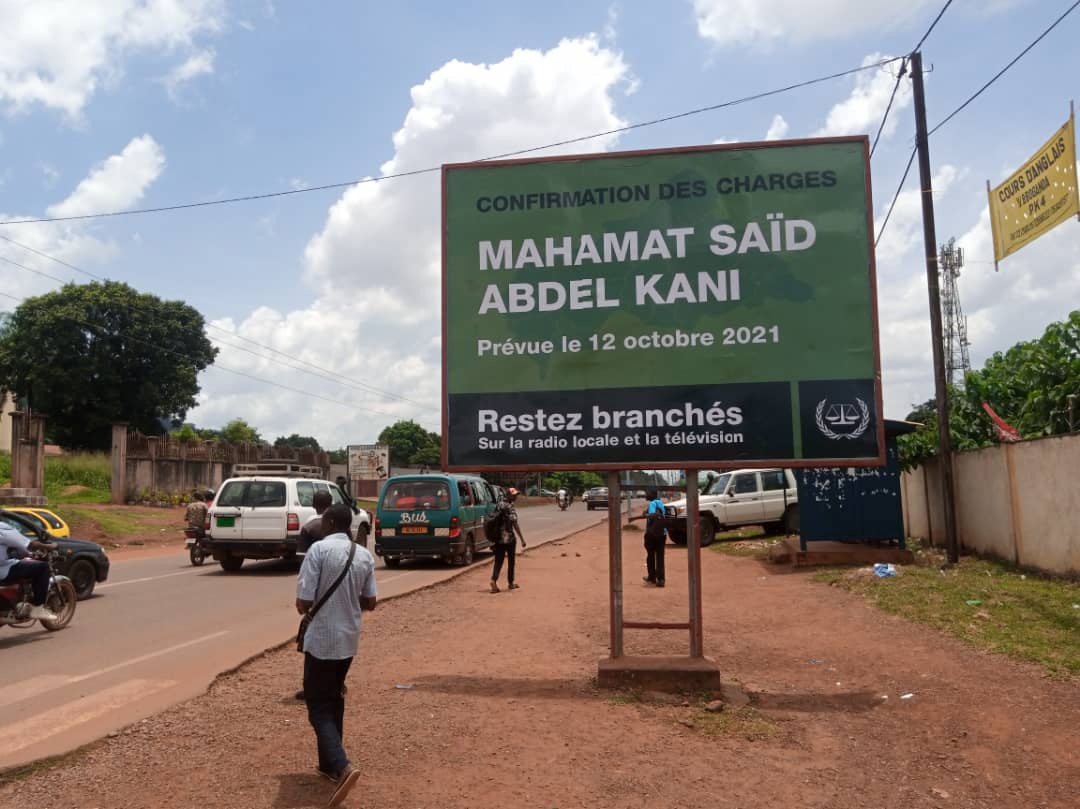ICC Should Pursue Higher-Level Seleka from Central African Republic

Today, the International Criminal Court (ICC) begins the pretrial hearing in the case of a former commander of the Seleka rebel group, who is charged with war crimes and crimes against humanity in the Central African Republic.
The case is an important and welcome step to advance justice for atrocities committed in the Central African Republic. During the confirmation of charges hearing, ICC judges will assess if there is enough evidence for the case against Mahamat Said Abdel Kani to go to trial. It is the first case brought against a Seleka member. But for the ICC to deliver meaningful justice, it will need to pursue higher-level suspects. Beginning in 2012, the Seleka, a rebel coalition of mostly Muslims from the country’s northeast, carried out brutal attacks on civilians in cities and towns while heading south toward the capital, Bangui.
They killed and sexually assaulted civilians, and razed villages. In 2013, local militias, called anti-balaka, rose up to challenge the Seleka and committed serious crimes in turn, in part because anti-balaka often equated all Muslims with Seleka. Last February, the ICC opened its first trial against two anti-balaka leaders, which is ongoing. Weeks before, Said was taken into custody and transferred to the court for serious crimes he allegedly committed while overseeing operations at two prisons in Bangui in 2013.
The Central African Republic authorities requested the ICC to investigate and prosecute crimes in the country.
The ICC is now operating alongside the Special Criminal Court, a novel war crimes court that includes international experts and Central African staff, as well as the country’s ordinary domestic courts. The ICC is a court of last resort and could never take all cases of serious crimes in Central African Republic. But it should pursue cases involving senior leadership, to help establish criminal responsibility at that level. This way, the ICC can both address expectations for justice and foster an environment to help other courts deliver greater accountability.
The fact remains that there are multiple other higher-level Seleka leaders implicated in the crimes, including those ruling large parts of the country, and who are alleged still to be committing serious abuses. But so far, Said is the only known Seleka commander facing charges at the ICC. Let’s hope this changes.
Read the full article at the original website
References:
- https://www.icc-cpi.int/Pages/record.aspx?docNo=ICC-01/14-01/21-2-Red2
- https://www.hrw.org/africa/central-african-republic
- https://www.icc-cpi.int/Pages/item.aspx?name=ma267
- https://www.hrw.org/news/2021/01/25/central-african-republic-first-seleka-suspect-icc-custody
- https://www.hrw.org/news/2021/02/07/qa-central-african-republic-first-icc-anti-balaka-trial
- https://www.hrw.org/news/2014/06/26/central-african-republic-icc-investigation-needed
- https://www.hrw.org/news/2021/09/14/central-african-republic-important-step-justice
- https://www.hrw.org/news/2019/04/24/central-african-republic-dont-reward-warlords
